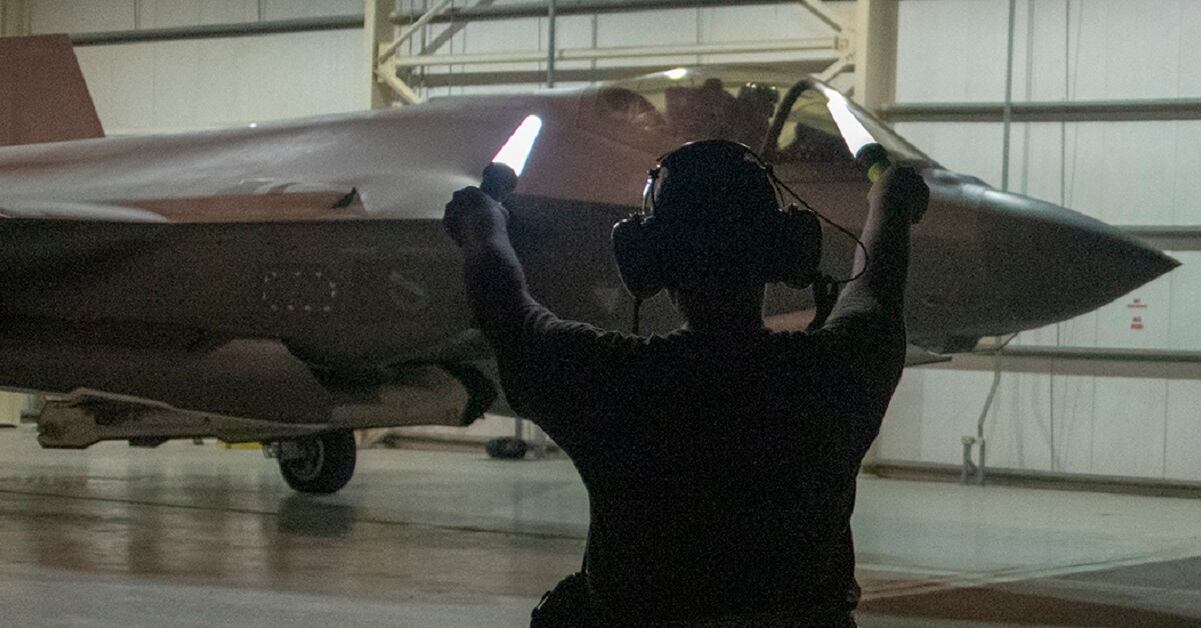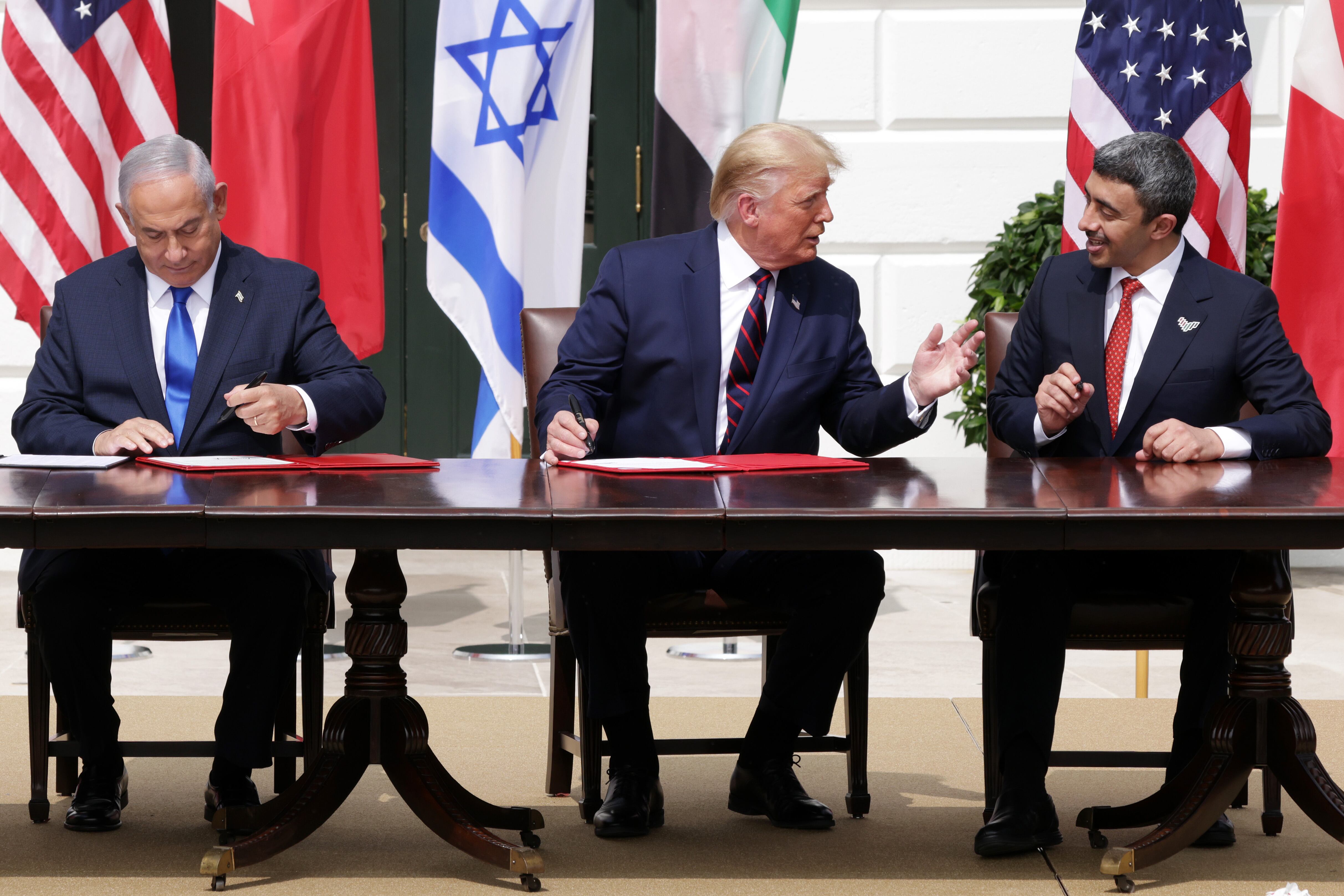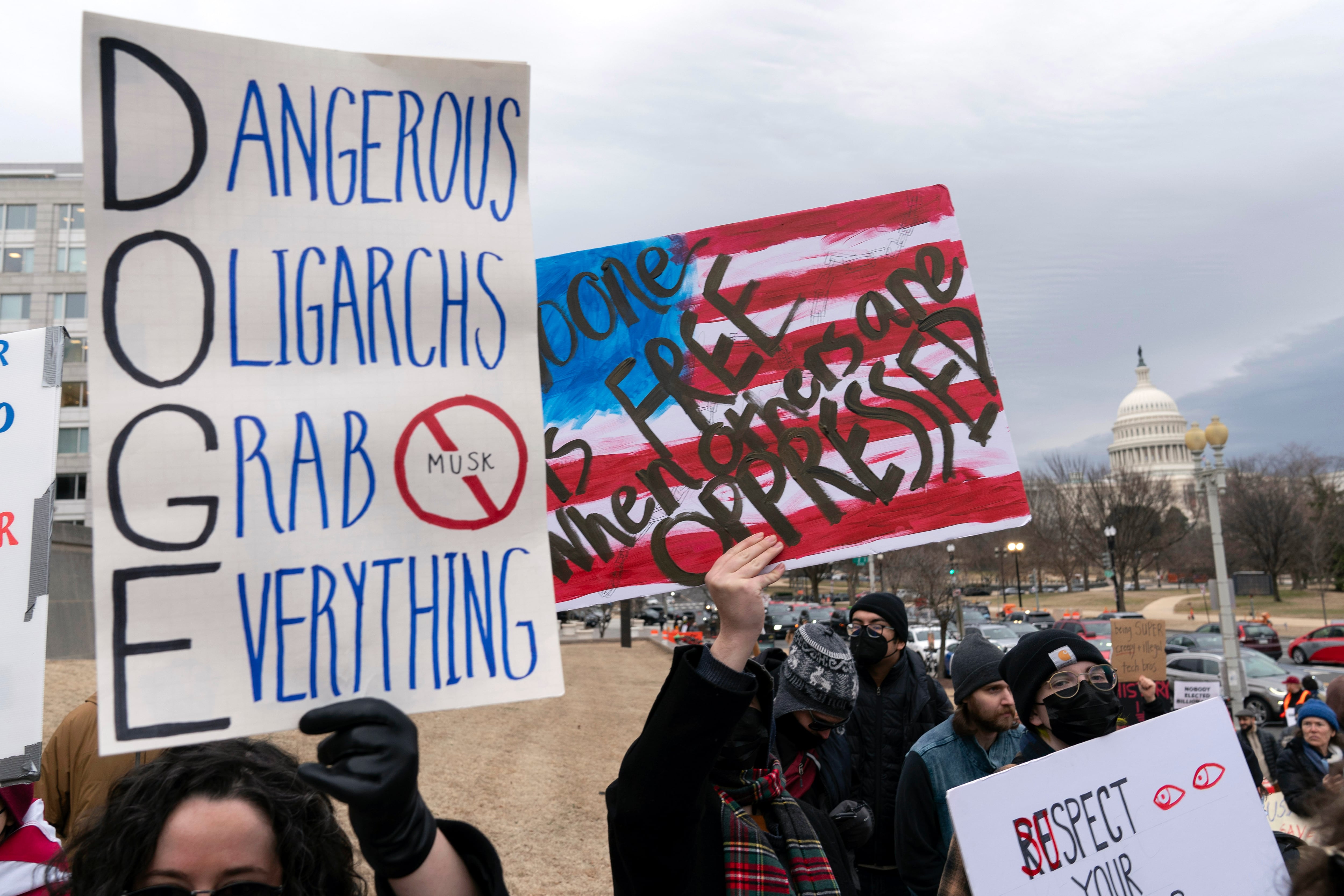WASHINGTON ― Two key Democrats are voicing “numerous questions” over President Donald Trump’s potential sale of Lockheed Martin F-35 aircraft to the United Arab Emirates, accusing him of rushing a deal for political advantage instead of thinking through potentially dire national security implications.
The letter Friday to Secretary of State Mike Pompeo by Senate Foreign Relations Committee ranking member Bob Menendez, D-N.J., and Senate Armed Services Committee ranking member Jack Reed, D-R.I., was another sign the fast-moving sale may slow to a halt on Capitol Hill.
The duo questioned whether such a deal with Abu Dhabi, which has security ties to Russia and China, would compromise the F-35, an advanced and sophisticated stealth warplane, and whether such a sale would set off a Middle Eastern arms race in which Iran seeks advanced warplanes from Russia and China.
How would the administration ensure the F-35′s sensitive technology isn’t threatened by the UAE’s ties to China (which sold it Wing Loong drones) and Russia (which is selling it the Sukhoi Su-35 fighter, the Pantsir S-1 missile defense system and the Kornet-E anti-tank missile system)? Has the UAE agreed to terminate cooperation and purchases with Russia and China in exchange for the F-35?
Warning that “U.S. national security and the safety of American troops could be seriously compromised by this sale,” they said the administration’s “breakneck speed” toward a deal “seems more tied to the political calendar than a sober deliberation about regional security.”
The F-35 program has grown to eight partner nations and six Foreign Military Sales customers. “Have you, or will you,” the lawmakers wanted to know, “consult with our partners about these risks and their views of this potential sale to the UAE concluding the sale?”
Reuters reported that Washington and Abu Dhabi hope to have an initial agreement on the sale of the F-35 in place by Dec. 2, as the Trump administration studies how to structure a deal without running afoul of American ally Israel. That news came on the heels of an agreement normalizing relations between the UAE and Israel.
That timeline would be “an extremely accelerated schedule, for interagency review, consultation with Congress, and preparation for [finalizing the deal] ― a process that can take months, if not longer,” the lawmakers wrote. “It has traditionally taken months for a complete and comprehensive interagency review of a proposed sale of this importance and sensitivity.”

Aside from key questions about how many aircraft were requested and the timeline for delivery, the lawmakers want to know how the Trump administration determined the sale would not jeopardize Israel’s qualitative military edge, or QME.
Any arms sale must satisfy a longstanding agreement with Israel that states any U.S. weapons sold to the region must not impair Israel’s QME, guaranteeing U.S. weapons furnished to Israel are “superior in capability” to those sold to its neighbors.
Reuters reported that the U.S government is studying ways to make the F-35 more visible to Israeli radar systems. A working idea was for Israeli air defenses to be able to detect UAE-operated F-35s with technology that effectively defeats the stealth capabilities of the jets.
If the aircraft would be reduced in their capabilities, the lawmakers want to know precisely how, with “a detailed written and graphic comparison.”
Agencies and congressional committees that would normally be involved in such a sale have been left confused and frustrated by Trump senior adviser Jared Kushner’s secret push to sell the F-35, CNN reported last month. The negotiations have reportedly been led by the National Security Council’s senior director for the Middle East, Miguel Correa.
Senate Foreign Relations Committee Chairman Jim Risch, R-Idaho, has said any potential arms sales would have to include congressional consultations, meet Washington’s obligation to retain Israel’s QME and satisfy other requirements of the Arms Export Control Act.
While many of the headlines surrounding the sale have focused on Israel’s QME, the UAE’s connections to Russia and China also present the Trump administration with serious questions. It’s unlikely that Abu Dhabi, which has developed those ties as a strategic hedge against its relationship with Washington, would give them up, said Samuel Ramani, a Mideast researcher at Oxford University.
“The UAE is looking at foreign policy in a multipolar and global sense. It’s looking at the U.S. as a core partner, but it’s also trying to diversify with Russia, with China, with India, Brazil, the Turks and non-Western countries,” Ramani said. “Weapons development with Russia is a way of signaling to the United States that if you don’t back on our line on Iran, if you’re not confident about having a long-term military presence in the Gulf and defend us, we can go elsewhere and we will go elsewhere.”
Ramani said there’s a parallel between the UAE’s purchase of Russian military hardware and Turkey’s, which led to its expulsion from the multinational F-35 program.
“I don’t think it’ll be the last time we’ll see the UAE and Russia together on a common front, given their common interests, given their security partnerships,” Ramani said. “When you see what’s happening in Libya, and think ‘where will this be five years or 10 years down the line,’ I would say a stronger partnership.”
Joe Gould was the senior Pentagon reporter for Defense News, covering the intersection of national security policy, politics and the defense industry. He had previously served as Congress reporter.





